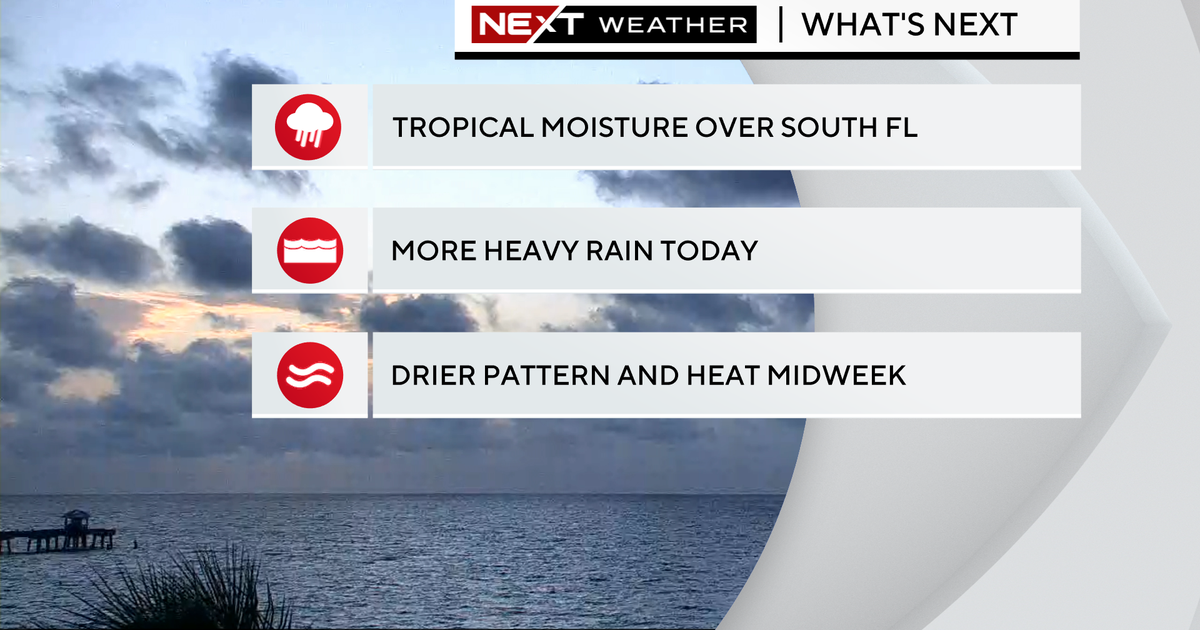Fact Check: Ignore social media claim, wear sunscreen
MIAMI - A popular post circulating on Instagram this week featured a picture of a person lying in the sand overlaid with the text, "the sun doesn't cause cancer." A caption on the post, which received more than 18,000 likes, implored people to "PLEASE stop wearing poisonous SUNSCREEN!"
Not true.
If you live in South Florida, you know the dangers of the sun and sunscreen is a must if you're going to be outside for a period of time.
Ultraviolet radiation from the sun is a major risk factor in developing skin cancer, and while some researchers have raised concerns that certain chemicals found in sunscreen may be harmful, its benefits outweigh any potential risks, experts and federal health authorities agree.
"Most cases of skin cancer are caused by overexposure to ultraviolet (UV) rays from the sun, tanning beds, or sunlamps," the U.S. Centers for Disease Control and Prevention states on its website.
The National Cancer Institute, which is part of the U.S. National Institutes of Health, similarly advises that "exposure to UV radiation causes early aging of the skin and damage that can lead to skin cancer."
Dr. Philip Friedlander, a medical oncologist specializing in skin cancer, said that the sun is a clear risk factor in developing skin cancer, because UV rays can create mutations in skin cells.
"The sun is a trigger for, mechanistically, causing damage to skin cells of various types that lead to different types of skin cancer," he said.
Health authorities such as the CDC and the U.S. Food and Drug Administration include sunscreen among their recommendations for protecting skin from the sun, despite claims that sunscreen is poisonous. Some researchers have raised concerns about certain chemicals found in sunscreen.
In May 2021, an independent research lab called Valisure announced that it had found traces of benzene, a chemical that can cause cancer with repeated exposure at high levels, in 78 sunscreen and sun-related products. But benzene is not listed as an acceptable active ingredient in sunscreen by the FDA, which regulates sunscreen in the U.S. The FDA has acknowledged the Valisure findings and said that it is conducting its own evaluation to assess the data.
Valisure's findings led to voluntary recalls later in 2021 by Coppertone and Johnson & Johnson, whose products were among those tested. Edgewell Personal Care voluntarily recalled three batches of one of its sunscreen products in July 2022 following an internal review that found trace levels of benzene in those batches.
A 2019 study published in the Journal of the American Medical Association found that repeated sunscreen use resulted in the absorption of the products' active ingredients in participants' bloodstream. It noted though that its findings did not mean that people should stop using sunscreen, and recommended further studies to determine the findings' clinical significance.
Still, multiple studies have shown that sunscreen reduces one's chance of developing skin cancer.
A 2020 review on the efficacy and safety of sunscreen published in the Canadian Medical Association Journal states that high-quality evidence has shown that sunscreen reduces the risk of developing skin cancer. It further advises that although "low-quality evidence has shown that some chemical sunscreen ingredients are systemically absorbed," physicians should recommend the use of sunscreen.
According to Friedlander, the protection afforded by sunscreen eclipses any possible harm.
"We know that limiting sun exposure using sunscreen decreases the skin cancer risk in people who already have skin cancer," he said. "Any benefits outweigh any potential, theoretical risks from the sunscreen."




